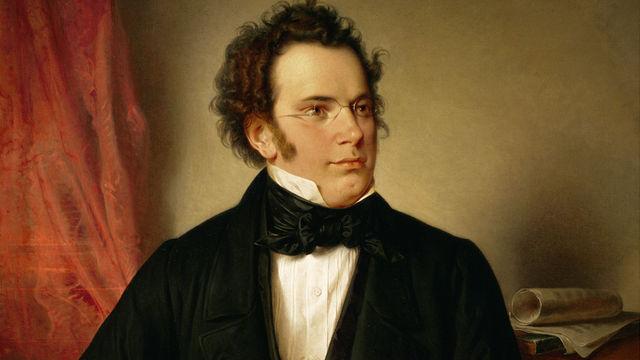Hurry! Hurry! Hurry! Only the last umpteen hours left of BBC Radio 3’s The Spirit of Schubert marathon. After some 200 hours of broadcasting to mark the 215th anniversary of his birth, Franz can perhaps be left to rest easy for a while. The poor chap has been scrutinised, analysed and turned inside out this week.
But no doubt the minor industry of finishing his unfinished works will go on unabated. He left behind a lot of fragments and sketches. As the long arm of the Schubertfest reached the North last night, we had the world premiere of his Symphony D (D708a) of 1821, commissioned by the BBC from the man who painstakingly and affectionately works wonders with mere fragments, Emeritus Professor Brian Newbould.
 He has been honing this particular skill now for more than 30 years: he completed the Seventh in 1978, since when he has done the 10th and, most famously, the Eighth, the Unfinished itself. Is nothing sacred? His is a rare, if debatable, pursuit, borne of scholarship and musicianship. After all, as someone once said, “Heard melodies are sweet, but those unheard are sweeter.” Well, be that as it may, let the debate rest.
He has been honing this particular skill now for more than 30 years: he completed the Seventh in 1978, since when he has done the 10th and, most famously, the Eighth, the Unfinished itself. Is nothing sacred? His is a rare, if debatable, pursuit, borne of scholarship and musicianship. After all, as someone once said, “Heard melodies are sweet, but those unheard are sweeter.” Well, be that as it may, let the debate rest.
I don’t know what precisely in the way of fragments Newbould started with, but what he has produced is a finished work lasting 35 minutes, true to the spirit of Schubert and pleasing to the ear. No mean feat.
Apparently, Franz made a start on all four movements, but failed to finish any. He wrote, Newbould tells us, in “piano score”, adding the name of orchestral instruments only five times. So, there are many challenges for the completist, such as the exclusion of trombones, which did not come into their own until the Seventh, written only a month or so after Schubert had abandoned the Symphony in D. Indeed, Newbould speculates that the desire to test himself and explore the full sonority of trombones (compared with horns or trumpets) might well have been the cause of his leaving it unfinished. Newbould keeps faith with the original – no trombones.
Mena had the BBC Phil on the edge of their seats, coaxing and demanding delivery of so many sections marked allegro, allegro vivace and presto
At any rate, the work opens spiritedly, especially under the hand of the Phil’s Chief Conductor, Juanjo Mena, whose fluidity, expressiveness and balletic style is well suited to youthful work. The symphony gains strength as it goes on. I particularly enjoyed the Scherzo and the Finale, in which Newbould brings together Schubert’s novel use of counterpoint and the Rossini influence, with some delicious flute decoration by Victoria Daniel.
Then we had the early Symphony No 1 in D major (D82, 1813), written – and finished – when the composer was a schoolboy, aged 16. What strikes you about the work is its freshness, youthful vitality and inventiveness. Yes, it is somewhat repetitive and you can hear echoes of Haydn and Mozart, but it is remarkable.The concert opened deceptively slowly before evolving into a brisk account of the Claudine von Villa Bella overture (1815) – virtually all that was left of what was intended to be a three-act comic opera. Then we had Salve Regina (D676, 1819), beautifully sung by soprano Ruby Hughes, who also impressed me when I last heard her sing Mahler’s Ruckert Lieder with the Phil.
Mena had the BBC Phil on the edge of their seats, coaxing and demanding delivery of so many sections marked allegro, allegro vivace and presto, especially in the new work – the centrepiece of the concert.
Newbould has the last word. His expressed dual aim was “to produce a work which might approach Schubert’s vision for it, had he finished it, and to provide an enjoyable symphonic experience”. A noble aim – and mission accomplished. The Schubould cannon is alive and well.
- Find out more about The Spirit of Schubert festival on the BBC Radio 3 website














Add comment